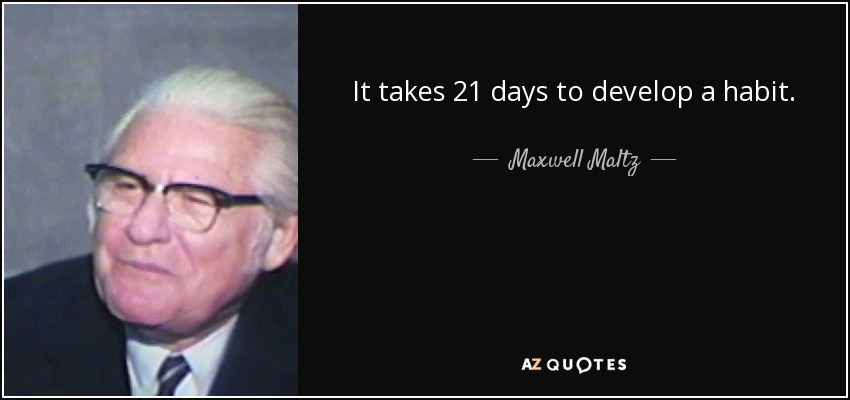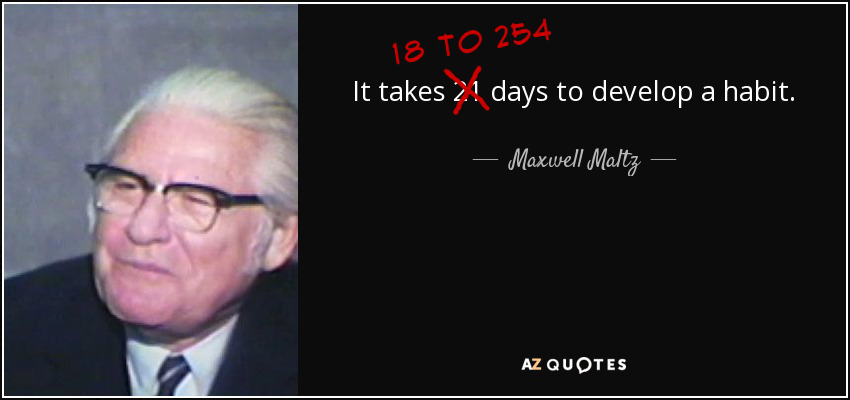How Long Does It Really Take to Build a New Habit?
While you’ll find many confident answers to this question, the true answer is, “it depends”. It’s commonly said that it takes 21 days to build a new habit. This belief came from Maxwell Maltz, who was a plastic surgeon in the 1950s. After a surgery, like a nose job or an amputation, it was around the 21-day mark when he noticed the patient’s reality catching up with the surgery. The patient would accept the new nose as their own, or no longer have a sense of a phantom limb.
Maltz took these observations and began applying them to his own life. He realized a similar window of 21 days to solidify new behaviors. In his research he said, “These, and many other commonly observed phenomena tend to show that it requires a minimum of about 21 days for an old mental image to dissolve and a new one to jell.” However, the part that’s often left out of Maltz’s research is the word ‘minimum’. Some habits can take less than 21 days depending on the difficulty and the motivation. For example, the habit of putting clothes immediately in the hamper to honor the wishes of a spouse could form in just a week, whereas something like jogging 3 miles a day could take several months to become normalized into your routine.
Phillippa Lally is a health psychology researcher at University College London who published a study in the European Journal of Social Psychology, which aimed to figure out how long it takes to form a habit. The study looked at the habits of 96 people over a 12-week period. Each person chose a new habit for the 12 weeks and reported daily on whether they did new behavior, as well as how easy the behavior felt. Some people chose difficult habits to begin and some chose more simple ones. At the end of the 12 weeks, the research team analyzed the data to determine how long, on average, it took to go from beginning a new behavior to growing it to the point of secondary nature.
The research concluded that on average, it takes more than two months before a new behavior becomes automatic — 66 days to be exact. And how long it takes a new habit to form can vary widely depending on the behavior, the person, and the circumstances. In Lally’s study, it took anywhere from 18 days to 254 days for people to form a new habit.
So what to make of all this? Well, we don’t need to make it more complicated than it is. Sure, we’d all like to know that “magic number” of days we need to stick it out before it comes naturally, but the reality is that we’re all different and every habit is different. There is no magic number! One way that would–at the very least–dramatically increase your chances of success would be to commit to 21-days of a new habit and then reward yourself in a way that would be personally meaningful. Then create another window of commitment followed by another reward. Before you know it, you’ll have hit a new normal.
Pro Tip: The researchers also found that “missing one opportunity to perform the behavior did not materially affect the habit formation process.” So if you miss a day or give in to an old habit, instead of stressing out about it, put your energy into ensuring you get back on track. A periodic slip will not derail all the good work you’ve done up to that point!



